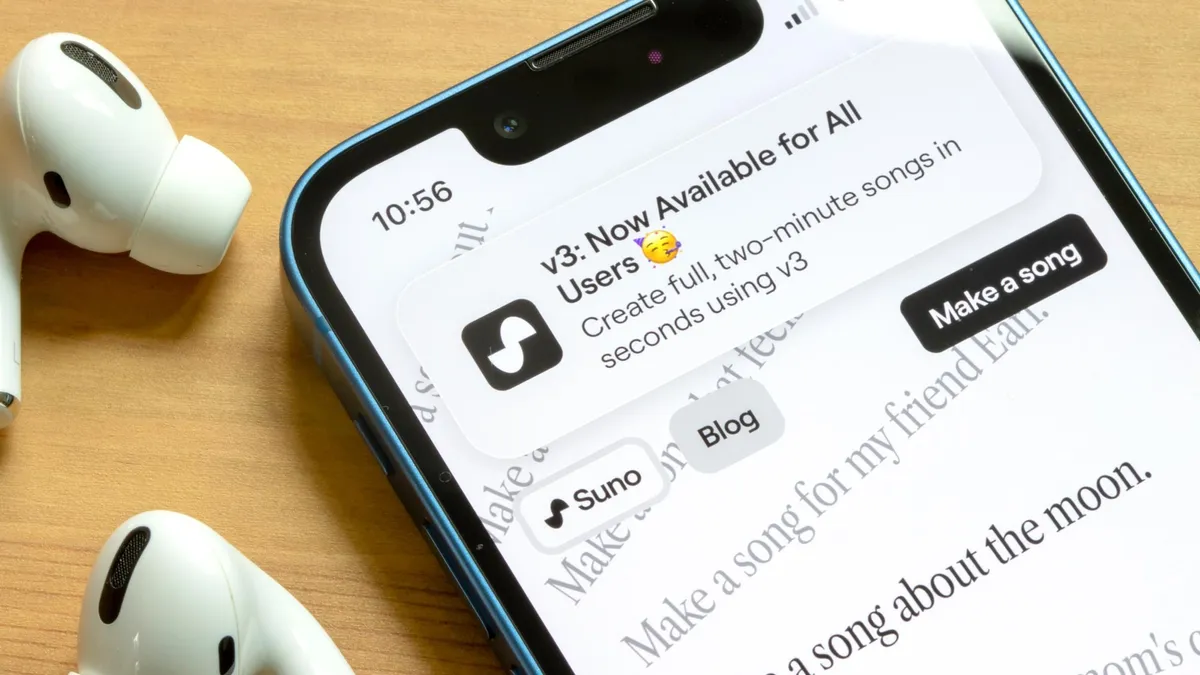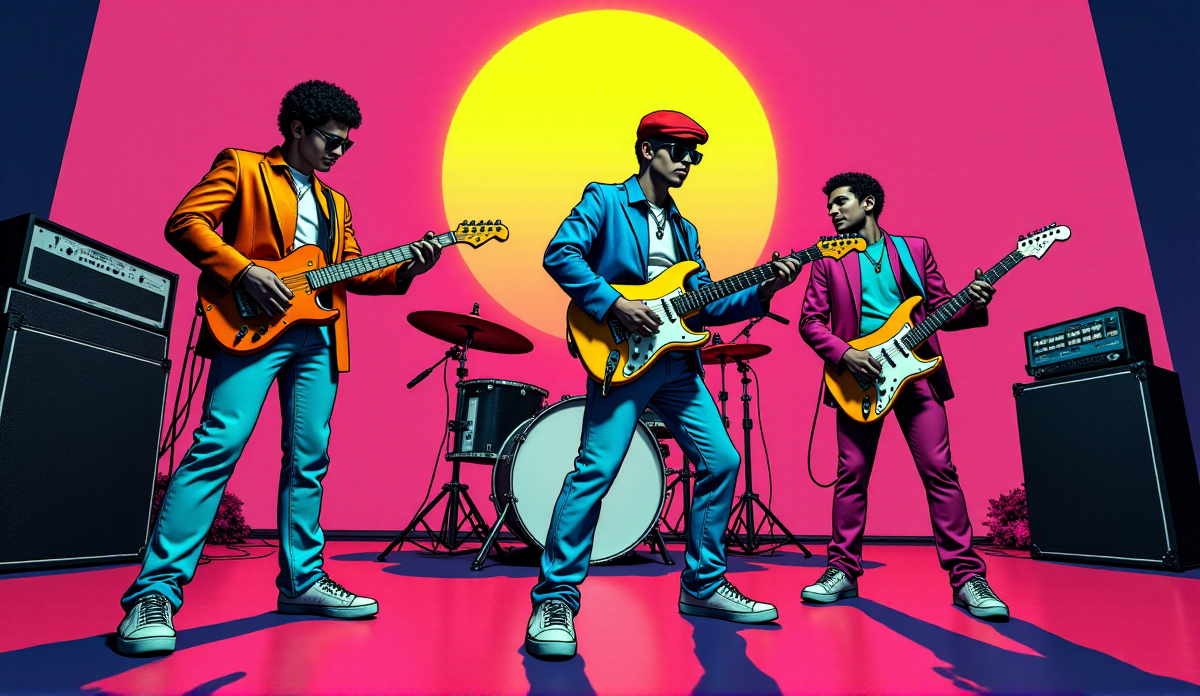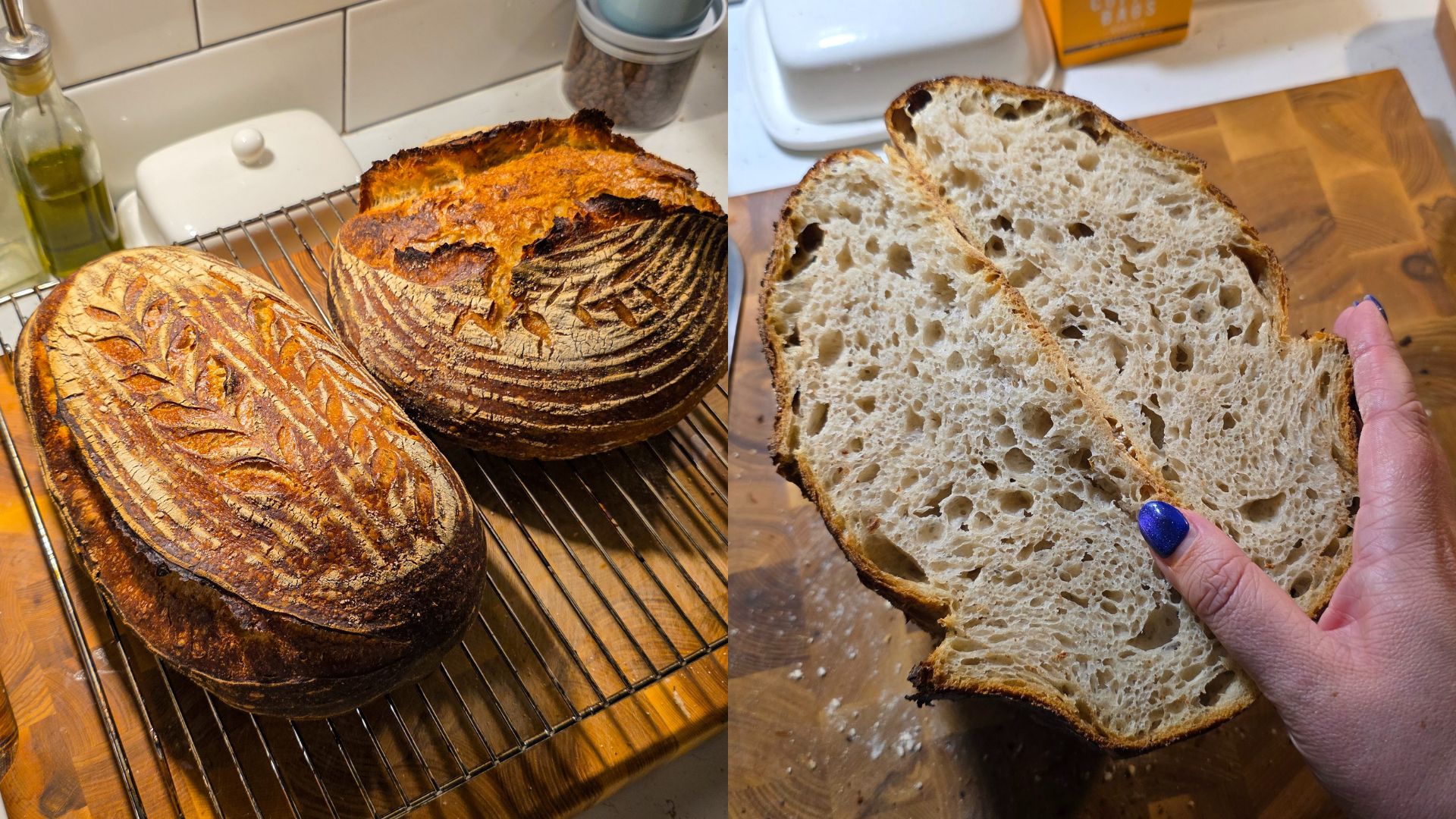Suno launches Personas — here's how to create an AI artist
Create consistent tracks with a click

Suno, the AI music maker platform, has just released Personas. The new feature, which is available for Pro and Premier plans only, lets users save ‘the essence’ of a song, such as the style and vocals, and re-use it again on different song creations.
In effect, it’s offering creators the chance to build up a catalog of tracks that sound like they’re made by the same group of musicians, not just a random AI algorithm.
You can even give your Suno 'persona' a name and an image, with its appearing alongside a track as if the persona were the performer of that song.
How Suno Persona's work

To generate a Persona, go to a track you’ve previously made and click on the Create option, then select Make Persona. At this point, you can name it, attach a thumbnail image for easy identification and add a description.
You can also make the Persona private or public as you wish. Once saved, the settings become available for any new track you want to generate.
I did some testing of the new option for a few hours and found some good and some average aspects to the process. The good part was how easy it was to use the new feature once created.
The Personas menu appears in the sidebar, along with a drop-down so you can select one of your pre-saved Personas while you’re setting up a new track. Just add or generate lyrics and you're set.
Get instant access to breaking news, the hottest reviews, great deals and helpful tips.
What's the point in Personas?
Adding personas addresses a big problem with AI music makers like Suno and Udio, in that it is very hard to make two tracks sound as if they were produced by the same artist. There are some long-winded workarounds you can use, but ultimately it’s still a bit of a lottery, due to the random nature of AI music generation.
But the overall concept is great, and something that will dramatically improve the whole AI music-making scene once the tech matures. It’s just going to take a bit of time to iron out the wrinkles.
Even if you select the same genre details, use a seed and give detailed instructions in your prompt, the chances are you’ll receive something quite different from your previous track. The ability to create and store a Persona changes all this. Now you can simply attach one to your track creation process and the platform should do the rest.
Unfortunately, I found the results to be a little hit or miss. The results were decent for clear-cut genres, say like reggae, but less so for more generic styles. I’m guessing it’s hard to stamp a strong identification on every possible variation of rock or pop, for example.
The vocal consistency across tracks was also a little lackluster. The vocal fidelity is roughly consistent if you squint hard enough. But there’s no way that you can currently create, say, your own Bruno Mars-type persona and confidently produce a series of banger tracks using that style.
But the overall concept is great, and something that will dramatically improve the whole AI music-making scene once the tech matures. It’s just going to take a bit of time to iron out the wrinkles. Luckily the new Personas option is clearly marked Beta, so it’s probably fair to cut them some slack and applaud the intent.
More from Tom's Guide
- Apple CarPlay is getting 3 big upgrades with iOS 18 — what you need to know
- Here's how Apple can close the AI gap with Google
- Apple's upcoming iOS 18 AI features may carry a ‘preview’ label — here's why

Nigel Powell is an author, columnist, and consultant with over 30 years of experience in the technology industry. He produced the weekly Don't Panic technology column in the Sunday Times newspaper for 16 years and is the author of the Sunday Times book of Computer Answers, published by Harper Collins. He has been a technology pundit on Sky Television's Global Village program and a regular contributor to BBC Radio Five's Men's Hour.
He has an Honours degree in law (LLB) and a Master's Degree in Business Administration (MBA), and his work has made him an expert in all things software, AI, security, privacy, mobile, and other tech innovations. Nigel currently lives in West London and enjoys spending time meditating and listening to music.










